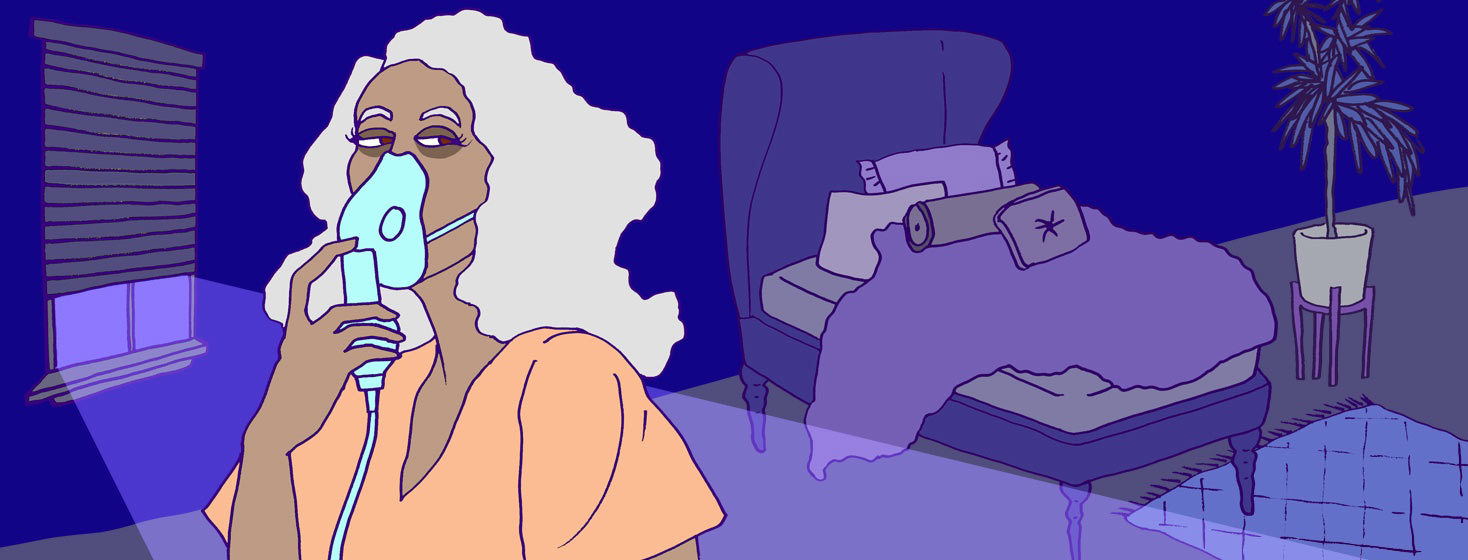COPD: Let Me Sleep on It, Please!
A progressive inflammatory lung disease, chronic obstructive pulmonary disease is a chronic disease that causes airflow from the lungs to be obstructed. Under COPD is emphysema, bronchitis, refractory asthma, and the genetic form which is Alpha-1 Antitrypsin deficiency. Insomnia is a condition where we have trouble falling asleep, or where we have trouble staying asleep.
Do COPD and insomnia go together?
I would definitely say yes. People with COPD often have a lot of mucus, difficulty breathing, coughing, and frequent wheezing. Any of these can cause a disruption of sleep, either before falling asleep or by waking a person up from sleep.
My insomnia seldom visits
When it does, I get severe headaches and am so very tired. I used to always blame Prednisone or coughing for the disruption of my sleep. Coughing disturbs my nights frequently, as does pain in my back, legs, and more. I can usually go back to sleep after I get up and walk around for a while. This isn’t always the case. On a night like last night, or should I say early this morning, very early; I wasn’t comfortable and woke up very early. Did I tell you that already? Then comes the headache.
I feel so bad for others who fight insomnia on a regular basis. When I get insomnia, I tell myself that my short and minor time with insomnia helps me to realize how fortunate I am. My struggle is minor compared to so many others. Some people struggle with their insomnia so often. Because of their COPD, they possibly have such thick mucus that they might have to do a nebulizer treatment, to loosen their phlegm. I take Albuterol and have used a Duo-Neb, which is Albuterol Sulfate and Ipratropium Bromide. Others may use Xopenex or other medications that their doctor prescribes.
The nebulizer is preferred
When I’m not feeling good, my doctor prefers that I use my nebulizer. My doctor prefers that my nebulizer is used as opposed to a rescue inhaler. The nebulizer takes longer to use, it works harder and deeper to help loosen the mucus, and it also opens the airway. The rescue inhaler is good as a quick burst to help open things up fast for a person to breathe, however, it doesn’t work as deep or last as long. It's also important to drink plenty of water.
Discuss your COPD and insomnia with your doctor
It's important that you discuss your insomnia and how it’s affecting your COPD with your pulmonologist or another doctor. Sleep is so important for your overall health. Some sleeping tips include:
- Don’t eat after 8:00 pm.
- Keep your bedtime and wake time the same every day and night.
- Avoid alcohol three hours before bed.
- Avoid foods that make you feel gassy.
- Do any of your medications cause insomnia?
- Your bedroom should be dark and quiet.
- Avoid caffeine.
- Relax. It’s important that people realize that anxiety and stress can affect sleep.
- Your doctor might recommend counseling or a sleep medication.

Join the conversation